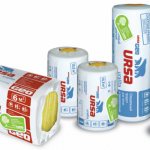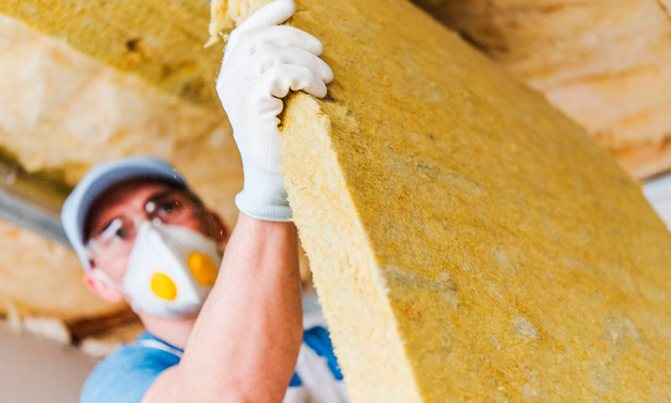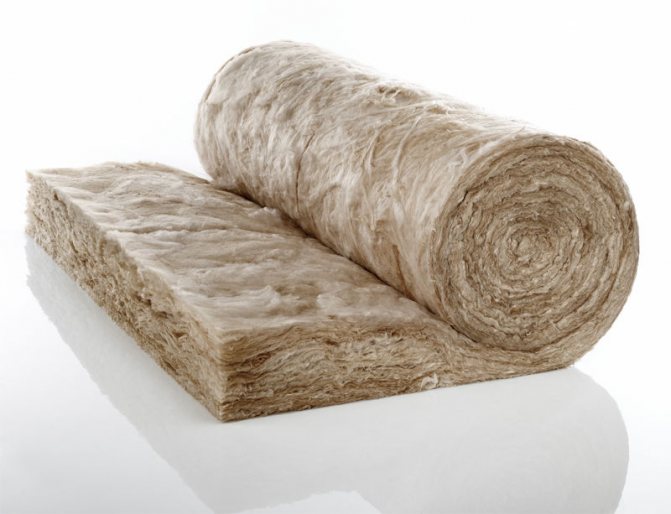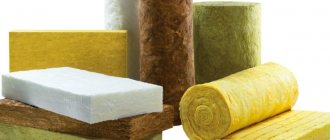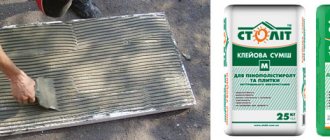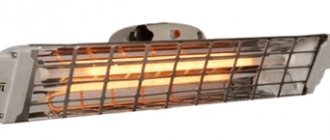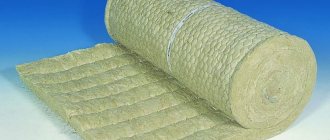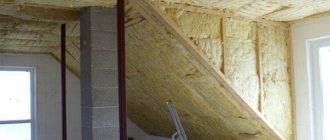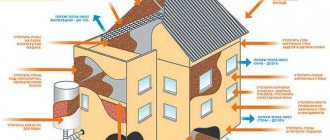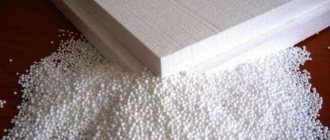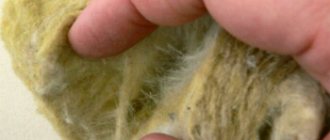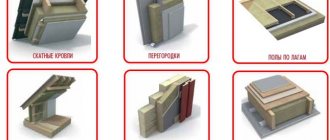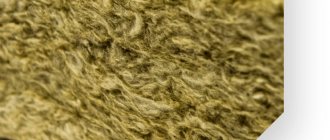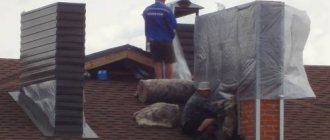| A place | Name | Feature in the rating |
| Top 10 best manufacturers of mineral wool |
| 1 | ROCKWOOL | Best quality and practicality |
| 2 | KNAUF | Most popular firm |
| 3 | ISOVER Saint-Gobain | The best combination of price and quality. Durability |
| 4 | IZOVOL | Highest level of fire safety |
| 5 | URSA | High-tech equipment |
| 6 | TECHNONICOL | Better rigidity. Withstands heavy loads |
| 7 | BELTEP | High wear resistance |
| 8 | PAROC | Practical and reliable |
| 9 | Isoroc | Universal characteristics |
| 10 | Thermolife | Good sound insulation |
It is impossible to imagine the arrangement of any room without heat insulating means for walls and floors. Minvata is one of the most effective types of inorganic fiber insulation. Thanks to the air contained in its gaps, heat is retained. The product is made from glass or rocks. The best performance helps to avoid cold air entering the house. Therefore, today it is the most demanded and durable product.
In the modern market, there are many manufacturers who successfully and efficiently produce mineral wool, which is subject to any geometry. Due to the flexibility of the material, builders form sealed seams. The insulation is sufficiently fire resistant, which allows you to be confident in safety. In addition, during operation, it does not emit toxins. We suggest that you familiarize yourself with the leading brands in this field in order to appreciate the experience of each of them.
Knauf - produces everything!
Knauf is a manufacturer that has proven more than once in practice that it can provide the construction market with the best deals. Thermal insulation is no exception. Knauf offers good quality mineral wool based on basalt fiber and fiberglass composition. The first option is widely used for technical insulation, in construction and in the manufacture of complex equipment. Fiberglass insulation is produced for a specialized purpose (TEPLOKnauf), which is confirmed by its names:
- WARMWALL;
- Heat stove;
- HEAT Roof;
- Acoustic partition;
- HEAT roll.
Most of the mineral wool sold by the manufacturer belongs to the Knauf Insulation series. There are no toxic phenol-formaldehyde resins in the manufacture of this product. The lines of thermal insulation Knauf Insulation and TEPLOKnauf are intended for the construction of residential buildings by individuals and construction organizations.
Disadvantage: high price
Rating: 9.9 points out of 10
Testimonials: “You rarely hear a bad word about Knauf. So the material is really excellent. "
URSA - a new generation of silent and environmentally friendly thermal insulation
The dense and resilient glass wool material is distinguished by its production using modern technology, without phenolic compounds. The range of the company includes:
- URSA GEO - materials for all areas of the house from semi-rigid floor slabs to rolls for attic floors;
- URSA PureOne is a soft white glass fiber bonded with acrylic. Safe insulation is recommended for hospitals and childcare facilities;
- URSA TERRA - boards and mats with hydrophobic impregnation and high density;
- URSA XPS is a polystyrene foam material that is resistant to deformation and stress.
Ursa mineral wool is resistant to open fire, chemicals and biological organisms.
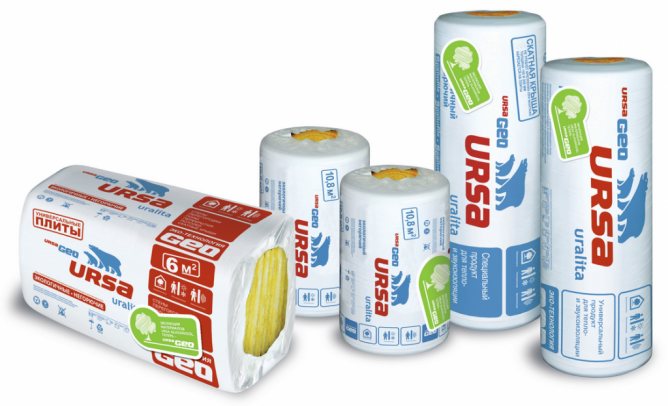
Rockwool - stone wool without flaws
Despite its Danish roots, Rockwool has many factories in Russia, which allows the company to offer an assortment of European quality, but without unnecessary price markup.The high quality of this mineral wool is confirmed by the builders, consistently choosing the products of the Danish brand during the work.
Rockwool mineral wool is enhanced performance:
- fire safety - Rockwool fibers withstand up to 1000 degrees at a standard data of 600 degrees Celsius;
- absorption of sound and vibrations, therefore, the material is chosen to create noise protection screens and to increase the acoustic comfort of rooms;
- environmental friendliness - Rockwool is certified EcoMaterial Green, although it has long been known that many dislike mineral wool, attributing properties that are dangerous to the environment, human life and health;
- durability without deformation and destruction;
- thermal insulation.
Review of the best manufacturers of basalt insulation
In the modern construction market, the leading position in the field of thermal insulation materials is rightfully given to mineral insulation.
The so-called mineral wool is often used as a heat insulator for buildings of any type and purpose, since it has a number of undeniable advantages, including excellent physical characteristics, environmental friendliness, ease of installation and affordable cost. The most popular type of mineral wool is basalt-based material.
Basalt insulation is obtained by melting gabbro-basalt rocks. The fiber filaments obtained in the process are mixed with synthetic thermosetting resins, which at high temperatures are polymerized and pressed into single layers of different thickness, stiffness, and density. Subsequently, the web is formed into cylinders, cut into slabs or longer mats, which are rolled up.
Even at the stage of drawing up an estimate, many are wondering - which manufacturer's insulation is better? With the existing variety in the building materials market, this can become a serious problem for the buyer. The peculiarities of production, as a rule, are not known to the consumer, they have to focus on the appearance of the insulation, information on the packaging and reviews on construction forums on the Internet.
If the question arose - what brand of insulation to choose, then you need to compare basalt heaters from different manufacturers. Today, the consumer is offered a huge number of different manufacturers, however, there are not many large companies with a good reputation and a quality product.
The list of manufacturers of basalt insulation in Russia, which have proven themselves at the world level, looks like this:
Rockwool is an international group of companies headquartered in Denmark and several manufacturing plants in Russia.
The main product of the company is basalt wool with medium density. This figure does not exceed 130 kg / m3. Rockwool mineral wool insulation is used for heat and sound insulation of various elements of buildings, fire protection of technological and power equipment, and is also intended for insulation of heating networks, main and industrial pipelines. The company's product is capable of providing not only basalt thermal insulation of premises and acoustic comfort, but it is also distinguished by high fire safety, since the basis of Rockwool insulation is made up of non-combustible natural components. The fibers of the material can withstand temperatures up to 1000 ° C, which allows the insulator to operate over a wide temperature range. At the same time, mineral wool does not emit harmful vapors or smoke in the event of a fire in the room, because in comparison with basalt heaters from different manufacturers, Rockwool products contain minimal portions of phenol-formaldehyde and acrylic resins.
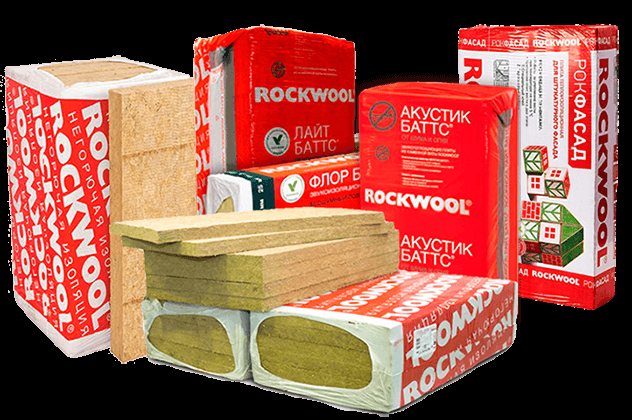

The Rockwool brand became the first in Russia to pass the voluntary certification of the EcoMaterial company and receive the EcoMaterial Green mark, which means that the product is safe for humans and the environment. Considering that in Russia about 70% of building materials do not meet the standard, it is safe to say that the presence of such a certificate distinguishes this manufacturer favorably in market conditions.
TechnoNicol is the next leading global manufacturer on our list. The corporation offers the market a wide range of heaters for various purposes, which are in demand both in private housing construction and in industrial construction.
Within this area, TechnoNikol offers products for plaster and ventilated facades, pitched and flat roofs, floors, ceilings and walls. The take-off run in terms of density is from 25 kg / m3 to 160 kg / m3.
The use of materials with different densities is due to the presence or absence of loads on the coating, temperature and humidity conditions. Insulation by the manufacturer TechnoNikol, which has a relatively low density of 40-50 kg / m3, is used in unloaded structures of pitched roofs, frame walls, balconies, interfloor floors, as well as when finishing surfaces for siding. Material with a density of 75–90 kg / m3 is used for the installation of plaster facades. Plates with a higher density have increased rigidity and withstand temperatures up to +750 ° C. Such insulation is indispensable for insulating metal and reinforced concrete structures, air ducts and high-temperature objects.
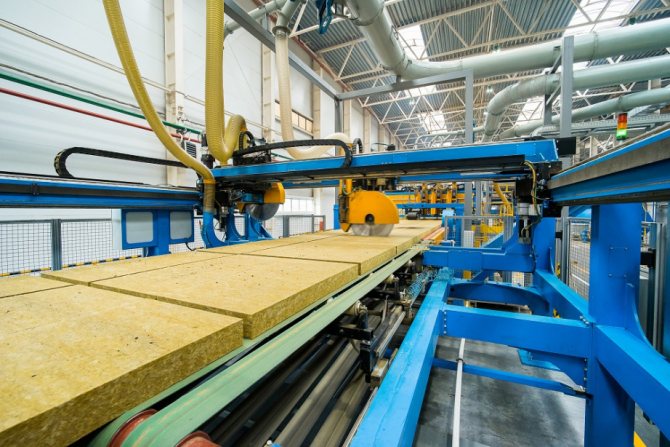

All TechnoNicol heat insulators are manufactured on modern equipment using world experience and developments of our own Research Center. It is not surprising that all products meet the highest requirements, are certified and environmentally friendly. And the best combination in the context of "price-quality" makes the insulation of this brand very attractive to the consumer.
Isoroc is the largest brand-manufacturer of various thermal insulation building materials, effectively coping with the needs and growing interest in the Russian construction market and offering a variety of basalt materials.
The Izorok production plant, located in the Tambov region, is equipped with high-tech Swedish equipment, and the production itself is carried out on the basis of German developments.
Insulation of Izorok manufacturer is produced in slabs of any thickness and is used in many areas of low-rise construction, from roof and floor insulation, use in layered masonry and "wet" facade, and ending with technical insulation of industrial equipment.
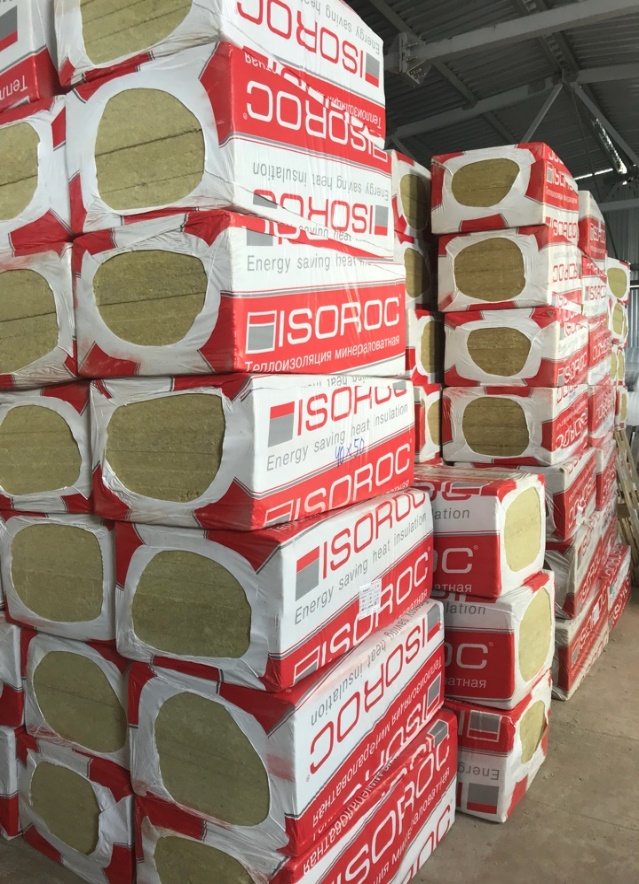

The products are distinguished by high resistance to compressive deformations and almost complete absence of delamination due to the short length of fibers and their location in the thickness of the board, which leads to good tensile strength.
The main demand in private construction is used for series of basalt products with an average density of 40-50 kg / m3. The manufacturer made sure that this brand of insulation compares favorably with competitors with an expanded range of materials.
Knauf insulation manufacturer (KNAUF) can also be found at the top lines of the ratings of the best manufacturers, whose materials are distinguished by the impeccable quality of their products. This brand has been known since 1932. It began to develop in Germany and quickly reached the world level due to the variety and quality of goods. However, it should be noted that Knauf on the Russian market is represented mainly by fiberglass-based heat insulators, and since, within the framework of this article, we are considering a list of manufacturers of basalt insulation in Russia, we will not dwell on the manufacturer.Let's just say that all products manufactured by this company are traditionally associated with high quality products.
Today we made a comparison of basalt insulation from different manufacturers and presented the main leaders in the production of mineral wool, releasing their products on the Russian market. Summing up, we can say that each of them produces quality products that meet the necessary standards and GOSTs. Therefore, in the question: which manufacturer's insulation is better - you should focus on the tasks to be solved and approach the choice comprehensively, understanding the features of the material and purpose.
Features of production
It should be noted that cotton wool in the Russian Federation is produced from various raw materials - diabase, dolomite, basalt, slag. Externally, the mineral wool from different manufacturing firms may not differ, but technologically - still how. Formulas are calculated in specialized laboratories, the results of research are a trade secret.
In general, the recipe looks like this:
- Stage 1. Melting of raw materials to a certain state. The prepared mixture is loaded into a specialized oven. The temperature reaches one and a half thousand degrees Celsius. The length and thickness of the fibers and their technical characteristics are determined from the degree of viscosity of the mass.
- Stage 2. The mass is placed in a centrifuge. Inside, rotating shafts roll the composition to form discrete fibers. A binder is also poured here - a synthetic compound that holds the raw melt together. Further, the resulting mass is transferred to the cooling chamber with a powerful stream of air.
- Stage 3. The lamellae forms fibers of the required volume and length. Then treatment in a heat chamber is applied. When exposed to high temperatures, the mass polymerizes and reaches its final volume, size and shape. Strength indicators are formed at the final stage, where it is extremely important to maintain the correct temperature regime.
- Stage 4. The end of production is molding and packaging of the resulting mass into blocks of the required dimensions. Wool is packed in a shrink film. It allows you to preserve the properties of cotton wool during storage and transportation.
What are the dangerous pests for pears?
Pests are dangerous for any pear, be it a young tree that is just starting to grow or an adult tree. For a young pear, insects are dangerous because they feed on the juice of the leaves. Pests bite off the top of the shoot, which means they oppress the pear. Since when pests appear on a young pear, there will be no growth, and, accordingly, no correct development.
For an adult pear, which is already bearing fruit, the danger of pests is that the yield decreases. The tree is suppressed, the growth also decreases, which means that the tree does not grow and develop correctly.
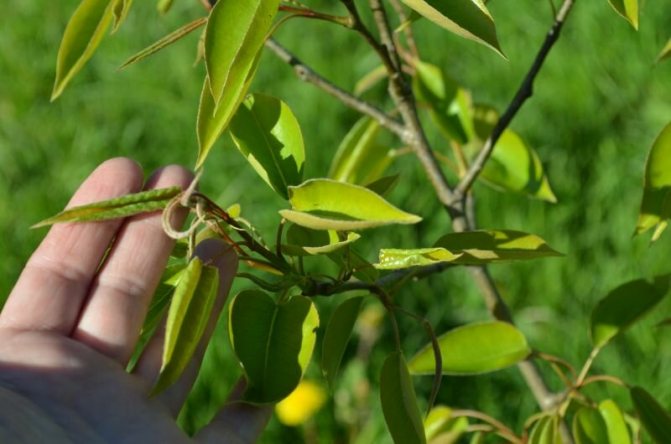

How to treat a pear from pests.
You can treat a pear from pests using folk remedies or chemicals. It all depends on the degree of pear infestation. If folk remedies do not cope with insects, then special preparations should be used.
- Tobacco infusion with soap,
- Wood ash,
- Ammonia.
These funds effectively destroy pests. Processing should be carried out 2-3 until the pears are completely free of pests. I sprinkle ash on pear leaves early in the morning after dew. I spray the pear with tobacco infusion (400 g per 10 liters of water) with the addition of laundry soap. I dilute ammonia in water at the rate of 100 ml per 10 liters of water. I spray the pear with the finished solution.
- Nitrafen,
- Alatar,
- Aktar,
- Karbaphos,
- Colloidal sulfur,
- Fozalon,
- Entobacterin.
One drug must be selected from the special drugs. One treatment is enough to get rid of pests on pears. We make the solution strictly according to the instructions on the package. Pear processing can be carried out in early spring, during the period of bud swelling and after flowering.
See more photos in my Instagram account wichtav, subscribe and comment
How to treat a pear from pests in May. The best remedies
In the spring, many pests wake up that have overwintered in the bark, in the soil, on old leaves and fruits. Insects feed on pear leaves in May. More dangerous pests destroy the crop by damaging the buds. Therefore, in order to preserve the tree and the harvest, it is necessary to treat trees in the spring from pests.
Beltep - affordable thermal insulation quality
Mineral wool of Belarusian manufacturers is slightly inferior in parameters to European competitors and occupies a worthy place in the rating of heaters. It is distinguished by:
- environmental friendliness, confirmed by certificates;
- low heat conductivity;
- high degree of sound isolation;
- hydrophobicity of plates, due to the use of special compounds;
- stable material shape;
- durability.
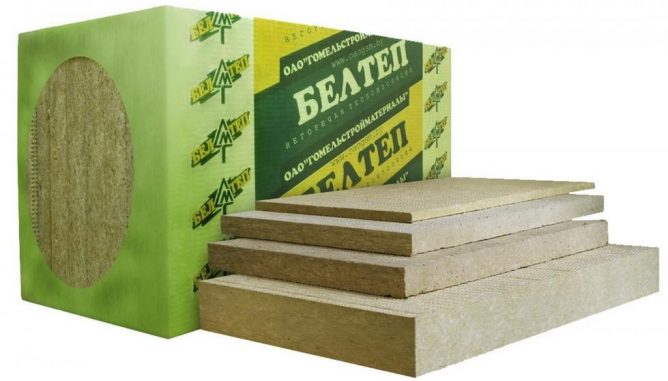

A large assortment of products, differing in strength and purpose, allows you to choose the optimal material for thermal insulation of a facade or pitched roof, floor or ceilings.
The listed manufacturers of heaters are not new to the construction market, their products have earned recognition due to the quality tested by the personal experience of buyers.
Stages of manufacturing mineral wool
The production of slabs or rolls of thermal insulation takes place in several stages, each of which maximizes the heat and sound insulation characteristics of the material.
- The rock is melted in cupola or other special furnaces at a temperature of 1500 degrees.
- The resulting melt is blown up with a jet of compressed air or water vapor. This method is called blowing. The second method is more expensive - centrifugal. In this case, the fibers, which later become the basis of thermal insulation, are drawn at a speed of 3 to 8 thousand rpm using centrifugal force in centrifuges.
- A carpet made of stone threads is watered with a binder (acrylic, phenol, bitumen, etc.).
- The structure of the products is being formed, on which the scope of application of the material will depend.
- Next, the cotton wool is subjected to heat treatment at 180-230 degrees for the polycondensation of the binder components.
- Plates are cut, packaged and sent to the warehouse or to the shelves of construction stores.
ISOVER - fiberglass without dust and stinging
The French company offers insulation based on glass wool, made in the form of rolls, mats and slabs. Its products, manufactured using TEL technology, have environmental quality certificates and are notable for their affordable cost. Material characteristics:
- thermal conductivity - 0.041 W / m * K;
- fire safety;
- protection from street noise and sounds inside the building;
- vapor permeability of 0.5 allows for the natural release of moisture;
- durability up to 50 years;
- material thickness 5-10 cm, roll length 7 and 14 meters.
Insulation ISOVER is available in several lines, differing in purpose:
- pressed material, laid without fasteners, for walls, slopes, horizontal slabs;
- universal insulation VENTITERM;
- slabs for pitched roofs;
- soundproofing mats;
- two-layer facade material.
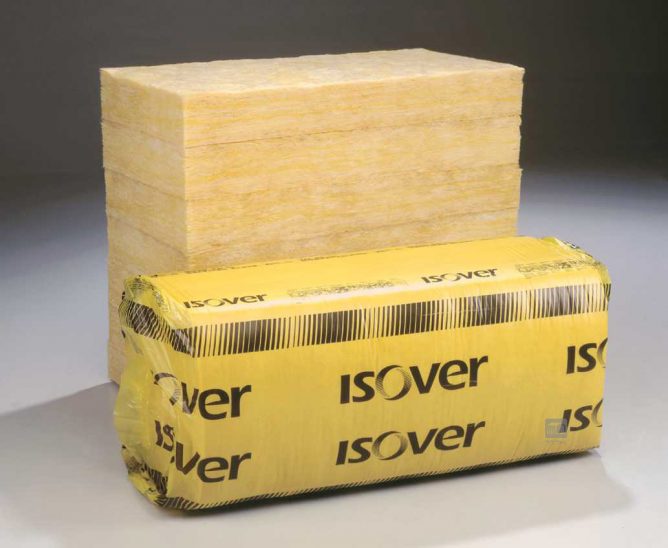

Views
There are three main types, namely:
- Glass wool. Sand, limestone, ethybor (mineral) and soda are involved in its creation. The creation technology is described above. Of the minuses - glass fiber is brittle, withstands up to 450 degrees of thermal radiation.
- Stone wool. It melts from rocks at 1500 degrees.
- Slag wool... Waste of the blast-furnace industry serves as a raw material for creation. The technology of creation is almost the same as the classical one.

